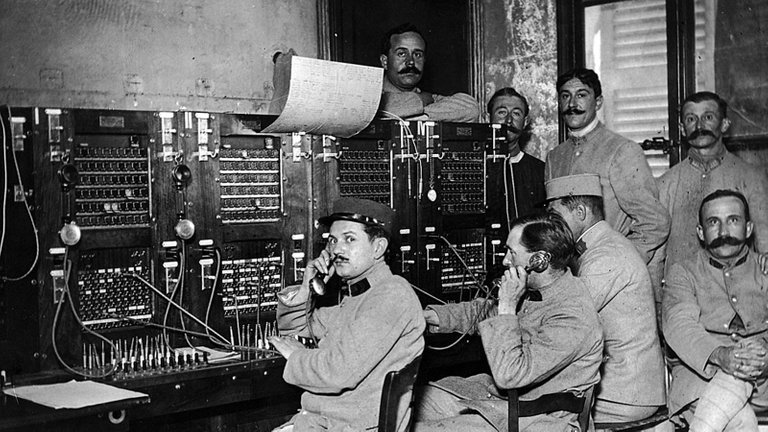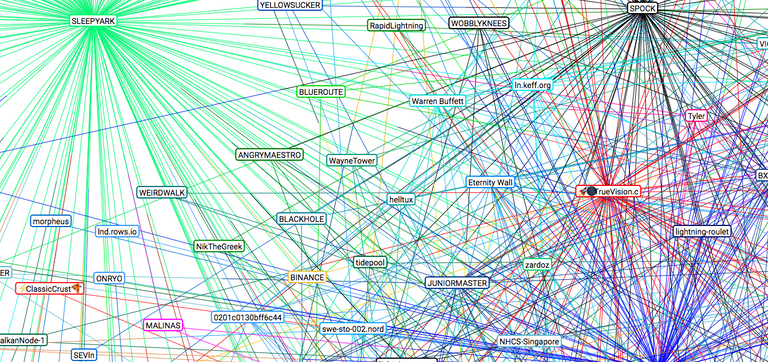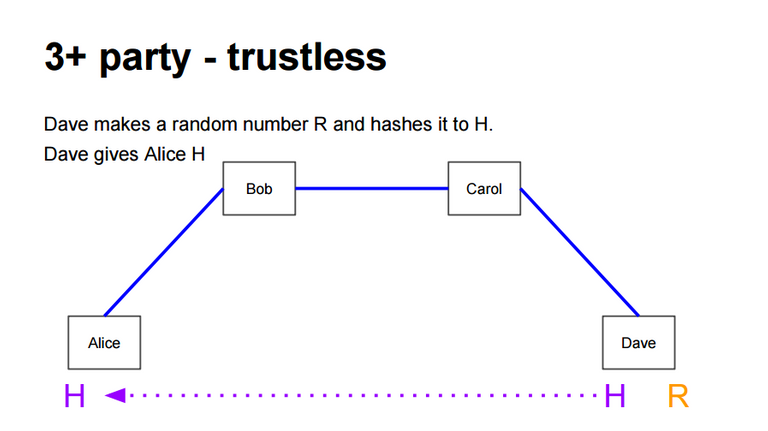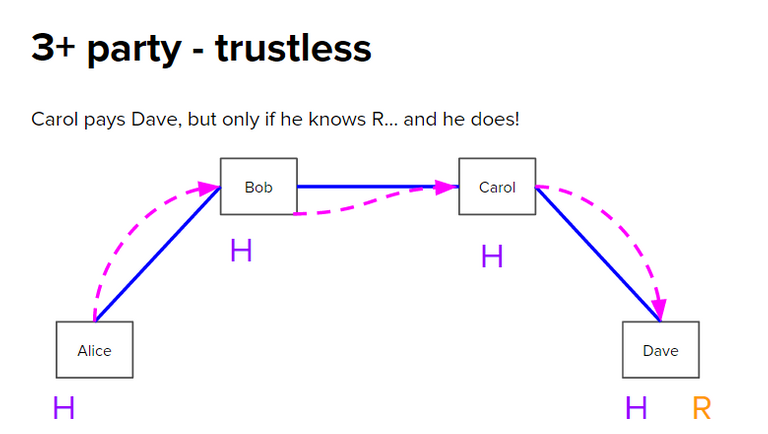
The testnet is out and running and you can see the acinq graph of the nodes that are participating.
In my opinion Bitcoin is a little late to the party of scalability and while the lightning network hold great promises, there is a lot of uncertainty if the network is actually going to work as expected. I see the main problem as a lack of liquidity for the users and in a second stance, a hard path to critical mass.
I started reading the whitepaper with some healthy dose of scepticism and, while I found many devices ingenious, I also found the overall architecture a bit over-complicated.
How does it work ELI5?
In a nutshell the Lightning network is just a series of p2p channels opened on a separate network off the blockchain.
☕️ I go to the bar every morning to drink a coffee so, instead of paying every day and waste many minutes counting my change I just open a tab.
₿ In a similar way I just open a channel with the bar and I sign a transaction every day paying the coffee📝. However, instead of broadcasting it to the network, the barman just holds it. The next day I will sign a new transaction that will overwrite the old one⌫✏️. I put there the price of yesterday’s coffee plus today’s☕️➕☕️. And so on, until at some point the bar owner decides to actually publish the latest transaction on the blockchain💰.
This is an over-simplified overview, in the nuts and bolts you will find how you can actually make this channel bidirectional, how to make the channel last longer and how to actually connect them in a network.
This last part is actually maybe the most interesting.

Connecting different nodes that are hosting a channel is actually the way in which, not only you lower the cost of the transactions, but you actually can gain money as intermediary.
Here we see how Alice can pay Dave. He doesn’t have an open channel and she doesn’t bother opening one for just one transaction (she usually transact with Bob). So instead she receives from Dave hash(R) and she will sign a contract that gives money to intermediaries (a lightning fee, hopefully lower than a real transaction fee) but only if they her R which only Dave knows.

So the release of R automatically pays the fees to intermediaries and signals that Dave was actually paid. This is what makes channels economically sustainable.

So all this is good and all but we are still not sure it will work and it just does not add anything to many working blockchains that scale to these levels natively. (see my piece on nano).
We don’t know if people are actually willing to run nodes for very low fees in return, and we need many, many channels to connect everyone (we need many channels to be fully connected like the internet). If a channel costs 5€ like an average transaction, then we may need a big cut of the total market cap 😂.